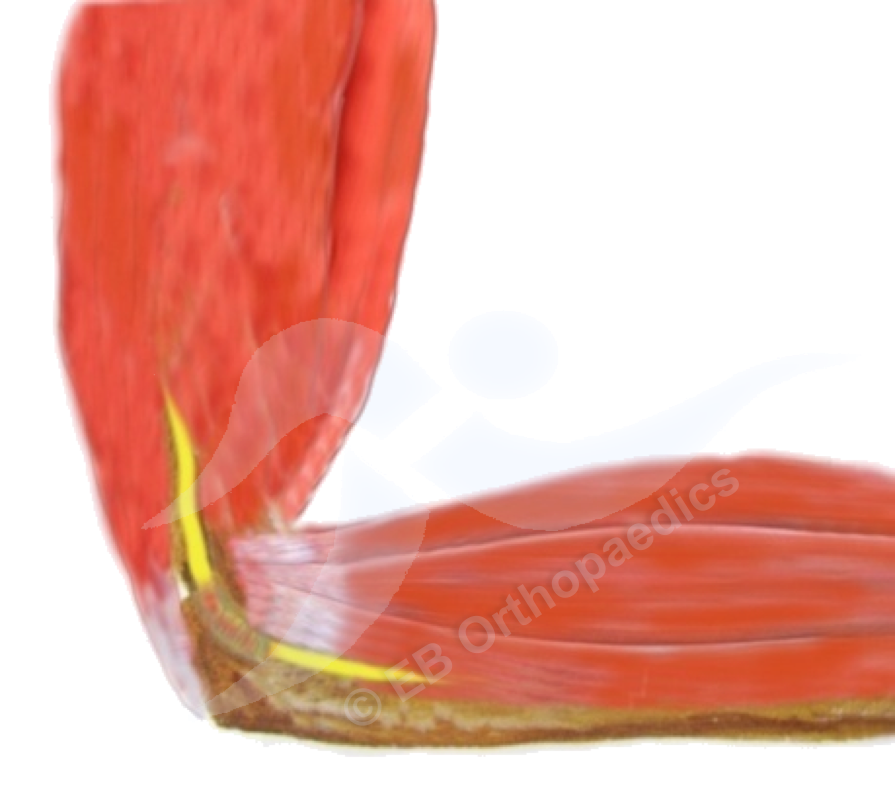Cubital tunnel syndrome

Cubital tunnel syndrome is a condition whereby the ulnar nerve is compressed at the elbow, causing symptoms of pins and needles and even numbness and weakness in the hand.
The ulnar nerve travels down the arm from the shoulder area and passes on the inside of the elbow under the bony prominence (medial epicondyle). It then passes down into the hand to supply power to some of the muscles and the feeling to the little finger and part of the ring finger.
There are various activities that can precipitate cubital tunnel syndrome. These include the repetitive bending of the elbow or prolonged direct pressure on the elbow such as resting the elbow on a desk, or while driving. A direct blow to the elbow can also lead to irritation of the ulnar nerve and cubital tunnel syndrome.
People often have an ache on the inside of their elbow and get pins and needles when doing certain activities such as driving or holding their phone up to their ear with the affected arm.
The pins and needles may progress to permanent numbness in their little finger and ring fingers and in later stages people may also report weakness in the hand.
Usually in the early stages, cubital tunnel syndrome can be treated effectively by wearing a splint at night which holds the elbow straight. This is effective as the nerve gets more squashed when the elbow is flexed up, something which people often do while asleep.
In those people where a night splint has not resolved the problem, or where they have a permanent change in feeling in the hand, or weakness then surgery is usually advised.
The surgery aims to release any points where the nerve is being squashed at the elbow. In some cases the nerve needs to be moved into a different position to prevent it being irritated when moving the elbow. Your surgeon will discuss this with you.
Routine physiotherapy is not usually required but may be helpful to prevent elbow stiffness.
Depending on the severity of symptoms, either wearing a night splint or surgery usually results in a full recovery. If you already have weakness and the muscles have wasted, then while this may improve, you may not regain your full strength. If you had continuous numbness before the surgery then again this may not fully recover, but it should not progress.